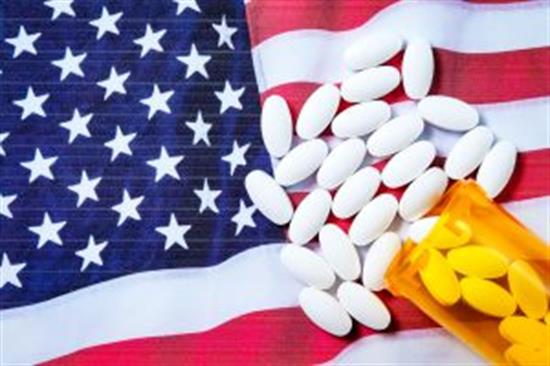In the News
Bucshon, Katko, Blackburn applaud president’s declaration of opioid crisis as public health emergency
Washington,
October 30, 2017
Tags:
Healthcare
“Hoosiers have been hit particularly hard by the epidemic, as Indiana is one of four states where the overdose rate has more than quadrupled since 1999,” Bucshon, a physician, said. “Opioid addiction does not discriminate based on income, race, gender, geography or age. Failure to stop opioid addiction and overdose deaths will allow this epidemic to continue destroying our families and communities and we cannot allow this to happen.”
U.S. Reps. Larry Bucshon (R-IN), John Katko (R-NY) and Marsha Blackburn (R-TN) were in attendance at the White House last week in a show of support for President Donald Trump’s declaration that the national opioid epidemic is a public health emergency. More than 300,000 Americans have died from overdoses involving opioids since 2000, and drug overdoses now outnumber car crashes and gun-related deaths as the leading cause of injury death in the United States, the White House said. Last year, more than 2 million Americans had an addiction to prescription or illegal opioids. The declaration will allow the federal government to respond more effectively to the nation’s public health emergency and will shift more resources toward substance abuse treatment. Bucshon, Katko and Blackburn have a strong track record for supporting legislation to fight the opioid crisis and Trump’s announcement builds on those actions taken by Congress. Specifically, the lawmakers helped pass the Comprehensive Addiction and Recovery Act (CARA) and the 21st Century Cures Act, signed into law in 2016, which direct billions of dollars in federal support to combat opioid addiction. Bucshon, who authored provisions of CARA that target drug diversion and open up access to medication-assisted treatment and other evidence-based treatment options, noted that the number of opioid overdose deaths in 2016 eclipsed the number of deaths reported at the height of the AIDS crisis in 1995. “Hoosiers have been hit particularly hard by the epidemic, as Indiana is one of four states where the overdose rate has more than quadrupled since 1999,” Bucshon, a physician, said. “Opioid addiction does not discriminate based on income, race, gender, geography or age. Failure to stop opioid addiction and overdose deaths will allow this epidemic to continue destroying our families and communities and we cannot allow this to happen.” Katko, who introduced the Stop the Importation and Trafficking of Synthetic Analogues Act of 2017, or the SITSA Act, to give law enforcers and prosecutors more tools to crack down on synthetic drugs like fentanyls, also applauded the president’s declaration. “The opioid and synthetic drug epidemic has devastated families in Central New York and communities nationwide,” Katko said. “Since coming to Congress, I have made addressing this scourge a top priority and we have taken some key bipartisan steps towards increasing resources available to treat and prevent addiction and to support our law enforcement. However, much more attention is needed.” Blackburn, meanwhile, said her home state of Tennessee is no stranger to the destruction caused by the opioid epidemic, and lawmakers can’t afford to stand by while it continues. “It is critical that we use every weapon available to us to fight this devastating epidemic,” Blackburn said. “The president’s decision to declare this a public health emergency gives states and communities more tools to address the crisis and unleashes government resources to better help those in need of help.” The Ripon Advance |

